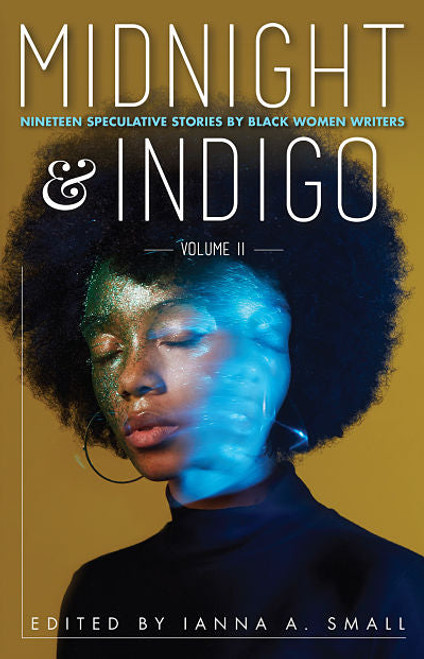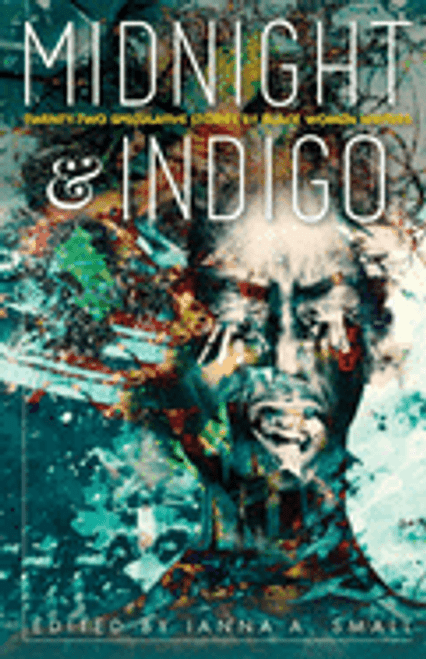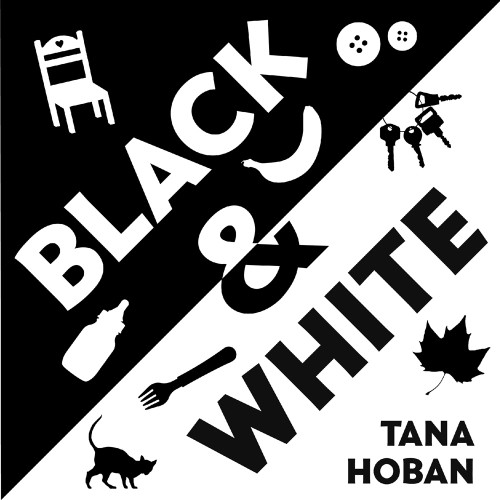midnight & indigo is a literary journal dedicated to short fiction and narrative essays by Black women writers.
Featuring 14 Black women writers, the second issue includes contributions by Khaholi Bailey, Zakiah Baker, rebekah blake, K.B. Carle, Jeannine A. Cook, Cassandra Eddington, Johannah Fienburgh, Janyce Denise Glasper, Marissa Joy Leotaud, devorah major, Zuri H. Scrivens, Vanessa Taylor, Janelle M. Williams, and Akilah Wise.
In "Wick" by K.B. Carle, the windows of the Big House separate Sylke from the house slave she visits at night. She can't help but wonder what this woman feels while she tends to the Master's family, and why she allows the drippings of candle wax to seep into the palm of her hand.
A young woman hides her love for her best friend who is currently dating someone else, in "Crazy" by Marissa Joy Leotaud. An old woman, who appears to be homeless, encounters a couple on a train and tells them the story of her searching in "Sunday," by Cassandra Eddington.
In "Kelsey Monahan Stole Your Goddamn Jacket" by Vanessa Taylor, a narrator returns to a shelter to find their roommate has stolen their jacket. In this story that touches on homelessness, shelter life, queerness, and Islam, what is otherwise a mundane event leads to an explosive reaction.
"The Goodbye Sister" by Janyce Denise Glasper introduces an Ohioan woman coming to terms with the absence of her younger sister. A Black woman is annoyed by the poor customer service at her local Harlem post office, in "In c/o Chidi Onyeachu" by Janelle M. Williams. In line, she obsesses over her ex-boyfriend, to whom she is sending a package. Upon revealing that the package contains her heart, everyone has an opinion.
In "Sitting Spells" by devorah major, Meecha makes a real love potion. She sends every young woman who seeks her help, to her sister Rhea for her cautionary tale about the truth of these potions. Are they worth it? "Up North" by Zakiah Baker follows a young girl through her 1950s summer journey of moving from a poverty-stricken South Carolina town to a wealthy city in Pennsylvania. When she meets free-spirited Cindy, she wonders whether she could be more than what she's been taught.
A mother and daughter come to terms with their mortality at different points in their lives in "Mary, Mara, and Death" by rebekah blake. Jamie recalls the night his little sister was born, in "Pomegranate" by Johannah Fienburgh. It was a night of fairy tales, power outages, and strange fruits fed to him by his mother. Jamie wonders what is memory and what is story.
In "Mr. Landry" by Akilah Wise, Mr. Landry spends his days watching the world from his porch in rural Louisiana. As the day turns to night on one particular day, he encounters a wide-eyed local who sparks a peculiar kind of fire.
Black Barbie, a personal essay by Khaholi Bailey, recounts her experience at the slumber party of a fellow fourth-grader, and the regift of one of her unopened toys: a Black Barbie doll. Latent racism, inferiority, and white guilt are revealed.
Little Brother by Zuri H. Scrivens was written following the news that one of her maternal uncles had died. The essay draws on her memories of the first time she heard her mother grieve, and how it shifted the concept of her familial role.
We Are The Champions by Jeannine A. Cook, describes a trip to an abortion clinic, taking the reader on the mental journey to an internal war. On the other side, we recognize how many other women warriors are fighting beside us to overcome similar battles.







